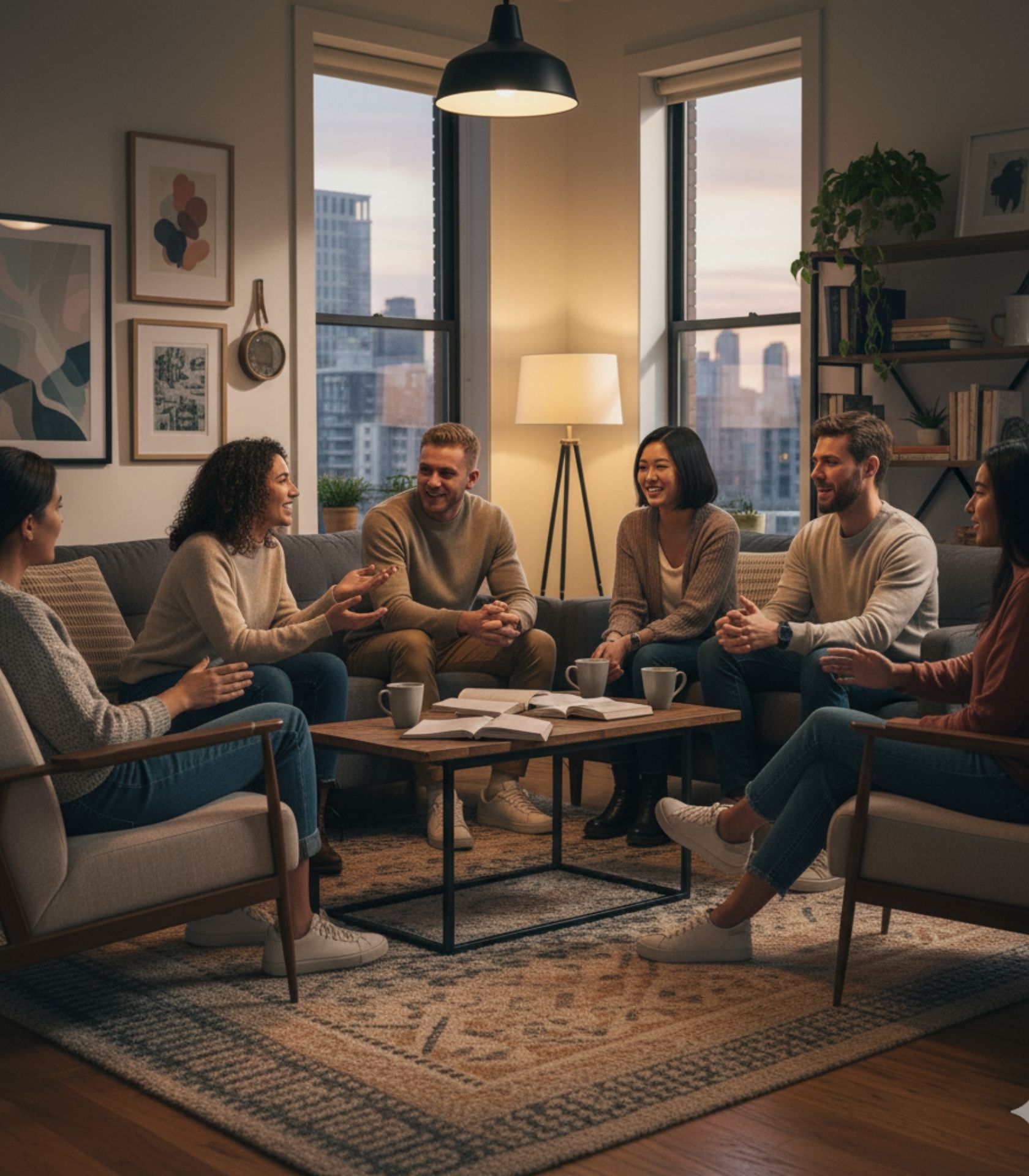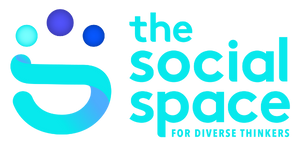PEERS® FOR YOUNG ADULTS

The Social Space provides a supportive environment where young adults aged 18–35 can develop the skills needed to navigate friendships and romantic relationships.
Research shows that young adults with social challenges including autism, ADHD, anxiety, or depression are at greater risk of isolation, poor friendship quality, dependence on caregivers, and limited independence. Romantic relationships can also be difficult to navigate, sometimes leaving individuals vulnerable to exploitation.
Despite these challenges, access to evidence-based therapy programs often diminishes after age 21, even though social demands continue to grow across adulthood. This gap in services inspired UCLA to develop PEERS® for Young Adults, extending their internationally acclaimed adolescent program into adulthood.
The program uses a parent/carer-assisted model, where participants attend weekly sessions while a consistent social coach (parent, sibling, mentor, or carer) joins a parallel group. Together, they learn concrete, ecologically valid social skills that reflect real-life demands supported through role-plays, video demonstrations, behavioural rehearsals, and home practice.
By focusing on friendships, communication, conflict management, and dating/romantic relationships, PEERS® empowers young adults to strengthen independence, build meaningful connections, and thrive in the community.
Skills Covered
Conversation & Friendship Skills
- Trading information and finding common interests
- Having two-way conversations
- Entering and exiting conversations
- Choosing appropriate friends
- Organising a get-together
Communication Style
- Using humour appropriately
- Respectful electronic communication
- Practising good sportsmanship
Handling Challenges
- Responding to teasing or embarrassing feedback
- Dealing with bullying and negative reputations
- Handling disagreements
- Managing rumours and gossip
Dating Etiquette
- Letting someone know you like them
- Dating safely
- Dating do’s and dont’s
Participation Requirements
To take part in PEERS® for Young Adults in Sydney, participants must
- Be aged 18–35 years
- Have proficient skills in recognising and managing their own emotions
- Experience difficulties socialising with peers
- Be motivated to attend and participate voluntarily
- Commit to attending all program sessions
- Be eager to learn through discussion and activities
- Be willing to practise skills with their social coach between sessions
- Have a consistent social coach available to attend weekly sessions
Why It Matters
Friendships and relationships are central to wellbeing, yet many young adults with social challenges struggle to form and maintain them. Without support, this can lead to isolation, lower confidence, and increased risk of mental health difficulties.
The good news: research shows that even one or two close friendships can make a profound difference—improving self-esteem, resilience, and independence while protecting against victimisation.
PEERS® helps bridge the service gap for young adults by providing practical, evidence-based strategies that support long-term social integration and wellbeing.
Proven Results
PEERS® for Young Adults has been validated in multiple randomised controlled trials and international studies. Findings show consistent improvements in:
- Social skills knowledge and real-world application
- Friendship quality and frequency of get-togethers
- Social communication, cooperation, and assertion
- Reduced autistic mannerisms and social anxiety
These gains are both immediate and long-lasting, with follow-up studies showing skills maintained well beyond program completion.
Research Articles
School-Based PEERS® for Adolescents
Participation Requirements
To take part in PEERS® for Young Adults in Sydney, participants must
- Be aged 18–35 years
- Have proficient skills in recognising and managing their own emotions
- Experience difficulties socialising with peers
- Be motivated to attend and participate voluntarily
- Commit to attending all program sessions
- Be eager to learn through discussion and activities
- Be willing to practise skills with their social coach between sessions
- Have a consistent social coach available to attend weekly sessions
Why It Matters
Friendships and relationships are central to wellbeing, yet many young adults with social challenges struggle to form and maintain them. Without support, this can lead to isolation, lower confidence, and increased risk of mental health difficulties.
The good news: research shows that even one or two close friendships can make a profound difference—improving self-esteem, resilience, and independence while protecting against victimisation.
PEERS® helps bridge the service gap for young adults by providing practical, evidence-based strategies that support long-term social integration and wellbeing.
Proven Results
PEERS® for Young Adults has been validated in multiple randomised controlled trials and international studies. Findings show consistent improvements in:
- Social skills knowledge and real-world application
- Friendship quality and frequency of get-togethers
- Social communication, cooperation, and assertion
- Reduced autistic mannerisms and social anxiety
These gains are both immediate and long-lasting, with follow-up studies showing skills maintained well beyond program completion.
Research Articles
School-Based PEERS® for Adolescents
Program Structure
Duration
12 weeks
Format
Weekly 90 minute Adult and Parent/Social Coach Sessions
Activities
Structured lessons with concrete strategies, supported by role-plays and behavioural rehearsals. Weekly assignments to generalise skills into real-world settings.
Parent/Carer Involvement
Parents and carers attend concurrent sessions to act as their teen’s "social coach"
How Can I Apply to Participate?
We’d love to welcome adults into the program.
Book an initial consultation to confirm whether PEERS® for Young Adults is the right fit for you or the young adult in your care.
